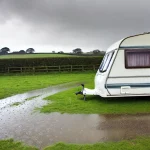Camping is a cherished pastime in the UK, offering a chance to escape the hustle and bustle of daily life and connect with nature. Whether you’re planning a weekend getaway in the Lake District, a coastal retreat in Cornwall, or a festival adventure, picking the right tent is crucial for a comfortable and enjoyable experience. But with so many options available, how do you choose the right tent size? Here’s a guide to help you make the perfect choice.
1. Understand Your Camping Needs
Before you even start looking at tent sizes, consider the type of camping you’ll be doing:
- Solo Adventures: If you’re camping alone, a smaller tent might be sufficient. You’ll need space for sleeping and storing your gear, but you won’t need to worry about accommodating others.
- Couples Getaway: A tent for two should offer enough space for sleeping bags or an air mattress, plus some room for personal belongings. Look for something cozy but not cramped.
- Family Camping: If you’re camping with family, you’ll need a larger tent with separate sleeping areas or rooms. This is particularly useful if you have children who need their own space.
- Group Outings: When camping with friends, a larger tent or multiple smaller tents can work well. Consider the dynamics of your group and whether you’d prefer a shared space or separate sleeping quarters.
2. Understanding Tent Capacity Ratings
Tent manufacturers typically rate tents by the number of people they can accommodate—such as 2-person, 4-person, or 6-person tents. However, these ratings often assume a snug fit with little extra room for gear or comfort. Here’s how to interpret these ratings:
- 2-Person Tent: This size is ideal for solo campers who want extra space or for couples who don’t mind being close. It may be too tight for two people with a lot of gear.
- 4-Person Tent: Perfect for a couple with extra space for gear or a small family. It can also work for two adults and two children, though it might be tight.
- 6-Person Tent: Suitable for a family with older children or a group of friends. It offers more space for sleeping and storage but can be cumbersome to carry.
- 8-Person Tent and Above: Great for large families or groups, these tents often have separate rooms and plenty of space for comfort. Keep in mind they can be heavy and require more time to pitch.
3. Consider the Weather
The UK’s weather can be unpredictable, so it’s essential to think about how your tent size will fare in different conditions:
- Wind: Larger tents can catch more wind, making them less stable in stormy conditions. If you expect high winds, a lower-profile tent might be a better option.
- Rain: Consider the space needed to keep your gear dry. A slightly larger tent can give you room to store belongings inside rather than in the porch area.
- Cold: In colder weather, a smaller tent can retain heat better, but ensure you have enough space for warm bedding.
4. Don’t Forget Headroom and Living Space
While sleeping capacity is important, don’t overlook the need for headroom and living space:
- Headroom: If you plan on spending a lot of time inside your tent, especially during rainy days, a tent with enough height to stand up in will make your experience much more comfortable.
- Living Space: A tent with a porch or living area can provide a place to sit, store wet gear, or enjoy a meal away from the elements. This can be especially useful for longer trips or when camping with children.
5. Weight and Portability
Larger tents often mean more weight and bulk, which can be a problem if you need to carry your tent for long distances:
- Car Camping: If you’re driving to your campsite, weight isn’t as much of an issue, and you can opt for a larger tent.
- Hiking and Backpacking: For trips where you’ll be carrying your tent, a smaller, lighter option is essential. Look for tents made from lightweight materials and with a compact pack size.
6. Practical Considerations for UK Campers
When choosing a tent size in the UK, consider practicalities like campsite sizes and regulations:
- Campsite Pitches: Some campsites have specific pitch sizes, so make sure your tent will fit comfortably within the allocated space. Check with the campsite beforehand if you’re unsure.
- Storage: Think about where you’ll store your tent when not in use. Larger tents need more space, so make sure you have a suitable storage area at home.
- Budget: Larger tents tend to be more expensive, so consider your budget when making a decision. However, don’t compromise on quality for the sake of a few extra pounds—your comfort and safety are paramount.
7. Try Before You Buy
If possible, visit a camping store to see tents in person before making a purchase. This allows you to get a feel for the space and headroom, and to see how easy they are to pitch. Some retailers even allow you to set up tents in the store, giving you a better idea of how much space you’ll have.
Conclusion
Choosing the right tent size is a balance between comfort, practicality, and your specific camping needs. By considering factors like group size, weather conditions, and portability, you can find a tent that will make your UK camping adventures enjoyable and stress-free. Happy camping!


